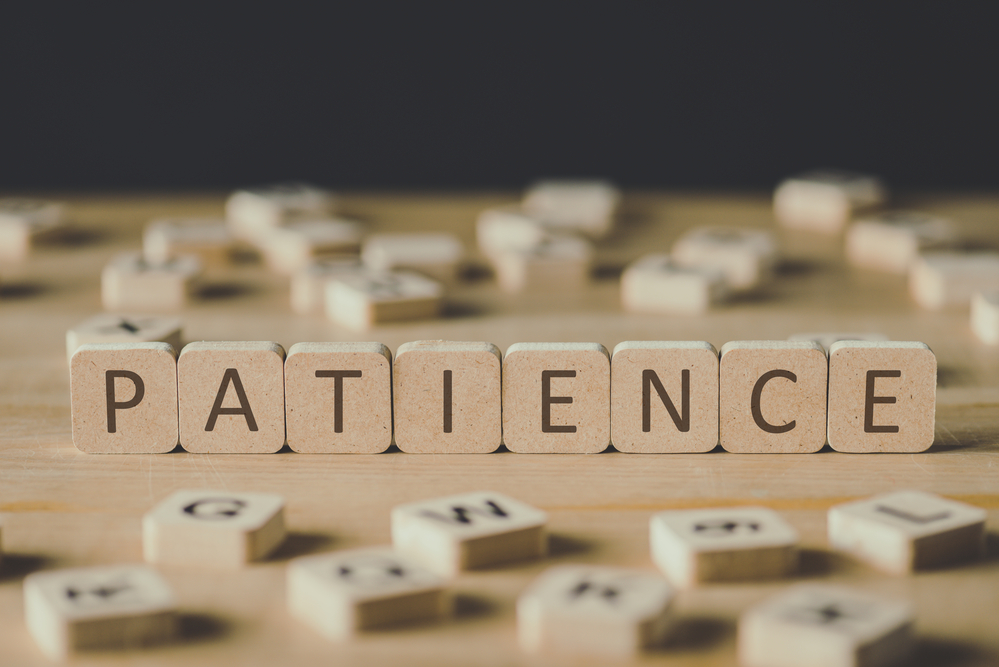Patience as a Negotiating Weapon - Fairfax DUI Lawyer Comments

Patience is a virtue with Virginia DWI negotiations, says Fairfax DUI lawyer
Patience is vital for Virginia DWI and criminal case negotiations. As a Fairfax DUI lawyer, I have experienced the trueness of this maxim again and again. Sometimes that approach leads to utter victory. At other times, that approach results in a wonderful negotiated result. For that approach to work, the lawyer's client needs to be on board. The defendant is more likely to be on board the more that s/he has confidence in his or her Virginia DWI attorney. That confidence can be engendered through the defense attorney's busting his or her butt in pursuing the best possible result for the defendant. Although I do not hunt for animals, a criminal defense lawyer can learn many lessons from hunters, neither pouncing too early nor too later.
How long is a prosecutor permitted to file a Virginia DUI charge?
Prosecutors have a one-year deadline from the incident date (which was extended during the height of Covid by a series of renewed Virginia Supreme Court orders, but no longer) to file Virginia DWI charges alleging driving under the influence of alcohol in violation of Virginia Code § 18.2-266. Consequently, when a prosecutor is unable to obtain a trial date continuance when the case is already over a year old, the case is over if the prosecutor does not proceed to trial on that day. Congratulations to my client for having declined a favorable plea offer (had the prosecutor been ready for trial) when prosecuted for DWI after a prior Virginia DUI conviction, with an alleged 0.24 blood alcohol concentration (BAC), which is three times the legal limit. A DWI conviction with proof beyond of a second offense and a BAC over 0.20 would have meant a thirty day mandatory minimum jail sentence, under Virginia Code § 18.2-270, let alone havoc on my client's reputation and career. In this instance, we showed up for the initial trial date in a county next to Fairfax, where the judges freely reschedule that date to the court-named blood docket, when the prosecutor is able to arrange for the presence of the Virginia Department of Forensic Science (DFS) blood analyst and the person who drew the defendant's blood at the hospital. Fairfax prosecutors have fewer witness availability issues when the jail blood draw person is available to draw blood, which is frequently, but does not happen when the defendant needs to be examined at the hospital after a collision. In this county with the alleged 0.24 BAC, all blood draws are done at the hospital, and the blood draw people often do not appear for trial, for one reason or another. In this county, I have not yet seen a prosecutor endeavor a workaround in the absence of the blood draw witness, which I will not elucidate here online (but which I fully share with my actual and potential clients whose BAC is measured via a blood draw.) Patience was a virtue for my client, as discussed further below.
When can patience amount to a permanent victory?
In my 0.24 BAC Virginia DUI case, the blood draw person did not appear on the second trial date, designated as the date the DFS scientist actually shows up to testify. The judge agreed with my argument that the assistant commonwealth's attorney / prosecutor had not stated good cause to continue the trial date. Over my objection, the trial judge next granted the prosecutor's motion to enter the case nolle prosequi, which is a non-prejudicial continuance that does not preclude the prosecutor from recharging the case. Nothing further happened, until three months later -- a mere nine days before the deadline to recharge my client -- my client got recharged. We appeared on the first trial date after recharging. Over my objection, the judge provided a new trial date to enable the presence of the DFS scientist and the blood draw witness, after I underlined that I objected to an continuance nor nolle prosequi the last time we appeared for trial. On the subsequent trial date, all essential prosecution witnesses appeared for trial, except not the blood draw witness. Rather than seeking a trial date continuance or even to proceed to seek a Virginia DUI general, the prosecutor waited a bit to see if the blood draw witness would appear, but that witness did not appear. The prosecutor asked if there was any way to settle the case, and I said "nolle," which is what the prosecutor did, making my client's case too late to ever be recharged again. (Fortunately, the commonwealth Supreme Court's emergency orders extending the deadline to charge crimes had expired before my client's alleged offense date.) Now, my client's case is permanently dismissed, and he is also fully eligible to petition to expunge this case from his public record. Patience paid off.
Will my Virginia DUI lawyer advise me well about how and when to proceed with case negotiations, or not?
It is not always easy to have such patience and to walk away from a plea offer that assures no time in jail (if the judge goes along with the agreed sentence). Your Virginia DUI lawyer ideally will have good instincts and understanding -- backed up by relevant experience and as much relevant information as possible -- to advise you what to do in that moment and in any other aspect of plea negotiations. In this instance, my client allegedly having a 0.24 BAC level made the right choice not to enter a DWI plea deal.
Fairfax DUI lawyer Jonathan Katz extensively understands the law, science, strategy, and trial of a Virginia DWI case. For your free in-person confidential consultation with Jon Katz about your court-pending prosecution, call 703-383-1100 for your calendared meeting with Jon.
